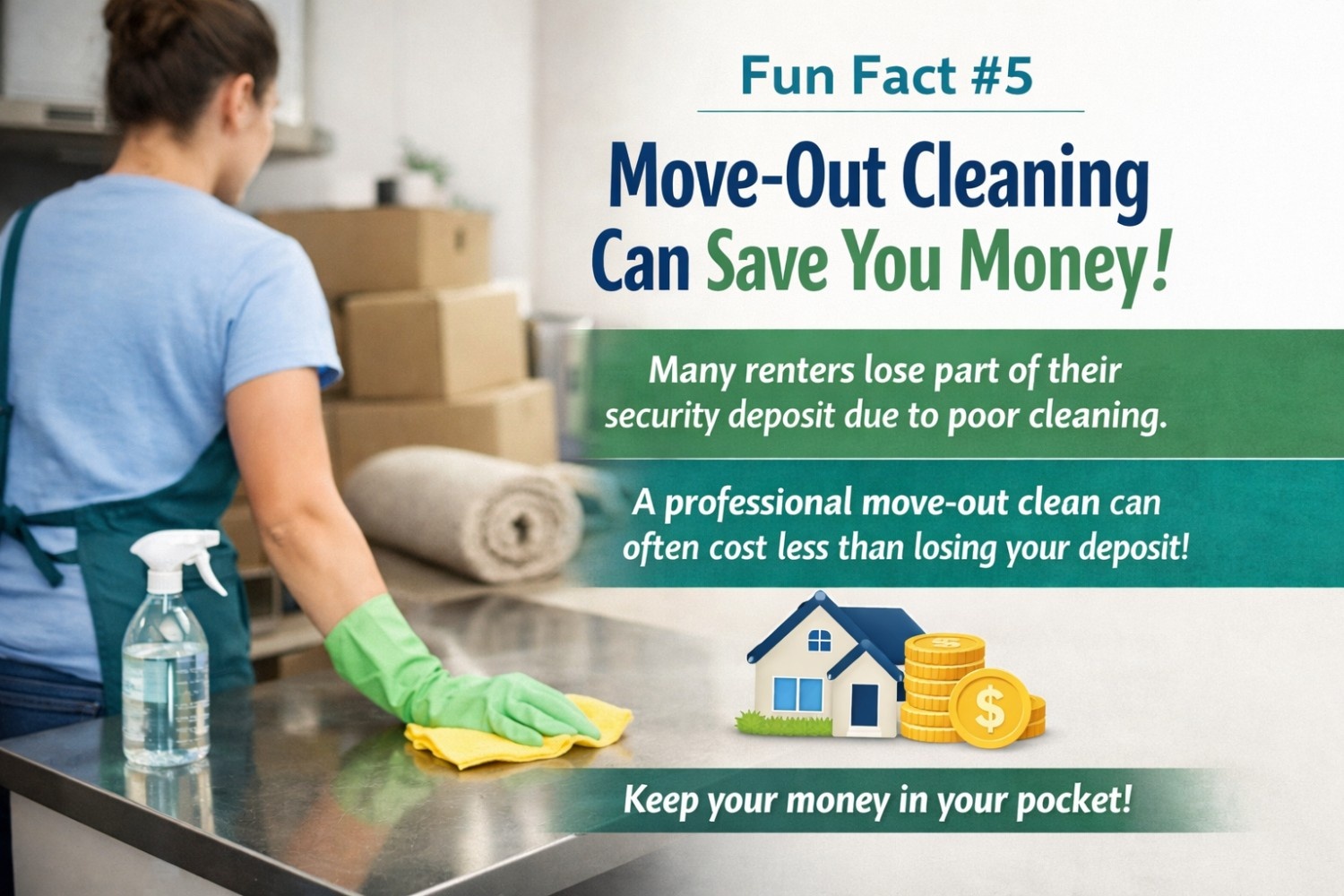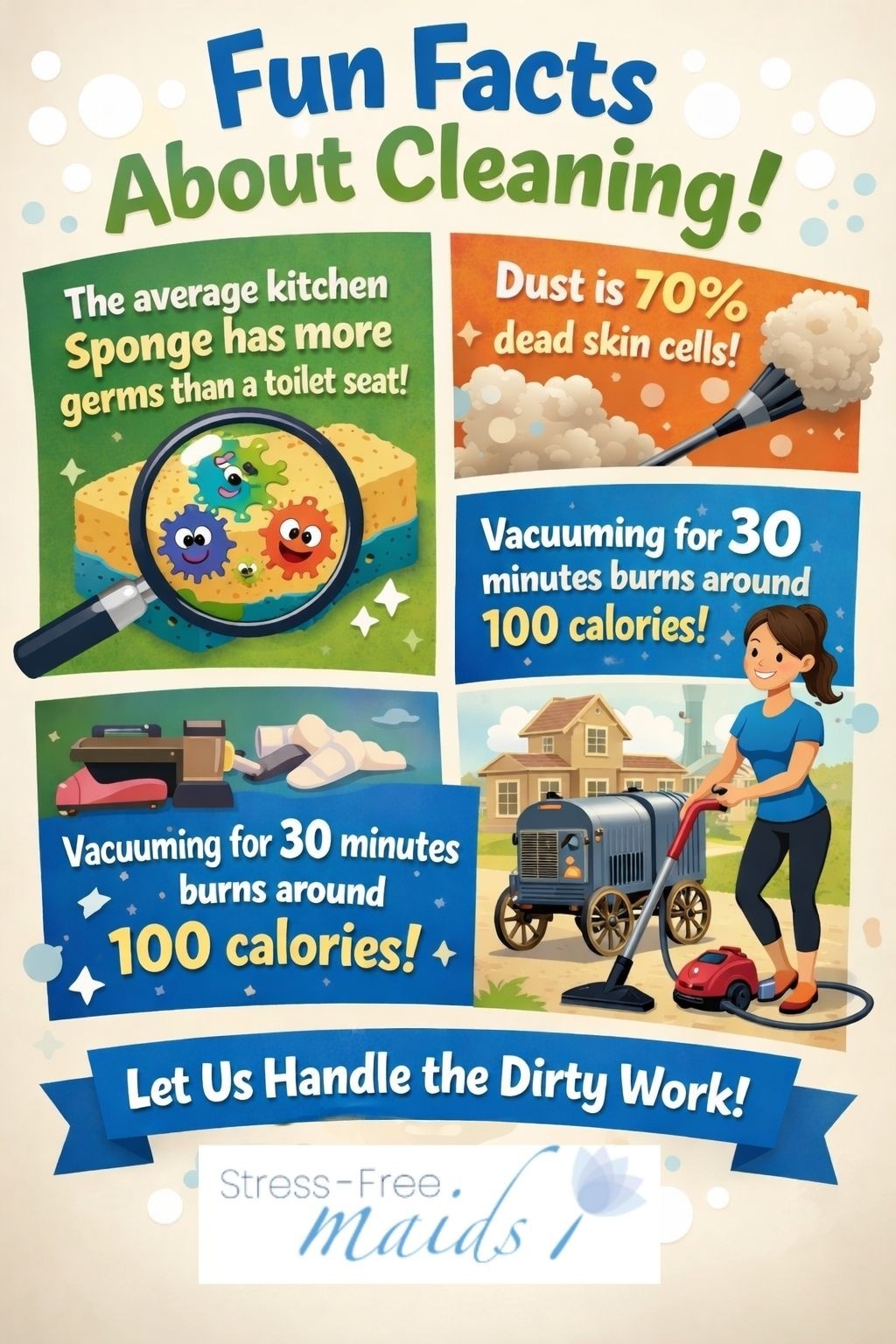
Are your baking sheets looking more like archeological artifacts than kitchen essentials? Caked-on grease, burnt-on bits, and stubborn stains can make even the most enthusiastic baker sigh. But fear not, Chicago! Stress-Free Maids is here to transform your grimy bakeware from drab to dazzling. Forget tossing those trusty sheets; with our expert tips, you’ll have them looking brand new, ready for your next culinary masterpiece.
The Battle Against Burnt-On Buildup: Why Baking Sheets Get So Dirty
Baking sheets endure high temperatures, greasy foods, and often, neglected cleanups. Over time, fats polymerize, creating that dark, sticky, almost impossible-to-remove residue. This isn't just unsightly; it can affect your food's taste and even its evenness of cooking. Understanding the enemy is the first step to conquering it!
Essential Tools for Bakeware Restoration
Before we dive into the techniques, gather your arsenal:
- Baking soda (or a baking soda substitute)
- White vinegar
- Dish soap (heavy-duty preferred)
- Hot water
- Non-scratch scour pad or sponge
- Microfiber cloths
- Plastic scraper or old credit card (for really tough spots)
- Rubber gloves (protect those hands!)
Method 1: The Baking Soda and Vinegar Power Duo
This classic combination is a go-to for a reason. It's effective, non-toxic, and works wonders on many types of stains.
- Rinse and Scrape: Begin by rinsing the baking sheet with hot water to remove any loose crumbs. Use a plastic scraper to gently dislodge larger burnt-on bits.
- Sprinkle Generously: Evenly sprinkle a generous layer of baking soda over the entire surface of the dirty baking sheet. Don't be shy!
- Drizzle with Vinegar: Slowly pour white vinegar over the baking soda. You'll witness a satisfying fizzing reaction – this is the acidic vinegar reacting with the alkaline baking soda, working to break down the grime.
- Let it Sit: Allow the mixture to sit for at least 30 minutes, or even a few hours for really stubborn stains. For truly neglected sheets, you can even leave it overnight.
- Scrub Away: After soaking, use your non-scratch scour pad or sponge to scrub the baking sheet. The softened grime should come off much more easily. For particularly tough spots, reapply baking soda and vinegar and let it sit for another 15 minutes before scrubbing again.
- Rinse and Dry: Rinse thoroughly with hot water and dry immediately to prevent water spots. Marvel at the transformation!
Method 2: The Hot Water and Dish Soap Soak (for Everyday Grime)
For less severe dirt and everyday grease, a simple hot water and dish soap soak can do the trick.
- Fill and Soak: Fill your sink or a large tub with very hot water. Add a generous squirt of heavy-duty dish soap.
- Submerge: Submerge the baking sheet completely in the soapy water.
- Wait and Work: Let it soak for at least an hour. The hot water and soap will work to loosen grease and food particles.
- Scrub and Rinse: After soaking, scrub with a non-scratch pad and rinse thoroughly.
Tackling the Toughest Foes: Burnt-On Oil Stains
Sometimes, even baking soda and vinegar need a little help. For those deep-set, carbonized oil stains on your baking sheets, consider these advanced techniques.
The "Oven Cleaner" Approach (Use with Caution!)
Warning: Only use this method on baking sheets that are NOT non-stick coated. Always wear gloves and eye protection, and ensure good ventilation.
- Spray and Wait: In a well-ventilated area, spray a thin, even layer of oven cleaner on the burnt areas of the baking sheet.
- Bag It Up: For maximum effectiveness and to contain fumes, place the baking sheet inside a large plastic garbage bag and seal it tightly.
- Let it Work: Let it sit for several hours, or even overnight, depending on the severity of the stain.
- Scrub and Rinse Thoroughly: Wearing gloves, remove the sheet from the bag. The grime should now be soft and gummy. Scrub vigorously with a non-scratch pad and rinse extremely thoroughly with hot, soapy water to remove all traces of the cleaner.
Hydrogen Peroxide and Baking Soda Paste
This paste can be surprisingly effective for localized dark spots on your baking sheets.
- Make a Paste: Mix baking soda with just enough hydrogen peroxide to form a thick paste.
- Apply and Wait: Apply the paste directly to the oil stains. Let it sit for 2-3 hours.
- Scrub: Scrub with a non-scratch pad and rinse.
Baking Soda Substitute: When You're All Out
Ran out of baking soda mid-clean? Don't fret! While baking soda is king for its abrasive yet gentle properties and its reaction with acid, you have options for cleaning your baking sheets:
- Cream of Tartar: When mixed with a bit of lemon juice or vinegar, cream of tartar can form an acidic paste that helps loosen grime on bakeware. It's excellent for polishing metals too.
- Washing Soda (Sodium Carbonate): This is a stronger alkaline compound than baking soda and can be very effective for heavy-duty cleaning of tough baking sheet stains. Use with caution and wear gloves.
- Salt + Lemon/Vinegar: Coarse salt provides a good abrasive. Combine it with lemon juice or vinegar for an acidic cleaning punch. This works well for light to medium stains on baking sheets.
- Cola: Believe it or not, the phosphoric acid in cola can help break down rust and some burnt-on residues on bakeware. Pour it on, let it sit, then scrub.
Dishwasher vs. Hand Washing: Checking the Dishwasher Safe Symbol
Many modern baking sheets are marketed as dishwasher safe. But what does the dishwasher safe symbol actually look like, and is it always the best option for your baking sheets?
- Common Symbols: Look for a symbol depicting a plate or glass with water droplets, or simply the words "dishwasher safe." Sometimes, it will specify "top rack only."
- The Reality: While technically dishwasher safe, prolonged dishwasher use, especially with harsh detergents and high heat, can still dull the finish of aluminum sheets and sometimes lead to residue buildup on even non-stick surfaces. The intense heat can also warp thinner sheets.
- Stress-Free Maids Recommends: For optimal longevity and to keep your baking sheets looking their best, we generally recommend hand-washing your baking sheets, especially if they are aluminum or have a non-stick coating. Save the dishwasher for truly dishwasher-friendly items.
Prevention is Key: Keeping Sheets Cleaner, Longer
Once your baking sheets are sparkling, adopt these habits to keep them that way:
- Line Them: Use parchment paper, silicone baking mats, or aluminum foil to prevent food from directly touching the sheet.
- Clean Promptly: Don't let food sit and harden. Clean your sheets as soon as they cool down.
- Gentle Cleaning: Avoid abrasive scrubbers like steel wool, especially on non-stick surfaces, as they can scratch and damage the finish.
- Dry Thoroughly: Always dry baking sheets completely before storing to prevent water spots and rust.
Stress-Free Maids: Your Partner in a Spotless Chicago Home
Cleaning dirty baking sheets can be a chore, but with these methods, you can restore them to their former glory. At Stress-Free Maids, we understand the challenges of maintaining a pristine home in bustling Chicago. Whether it's tackling stubborn kitchen grime or providing a complete home refresh, our professional cleaning services are designed to give you peace of mind and a sparkling environment. Let us handle the dirt, so you can enjoy a truly stress-free home.
Ready to reclaim your clean kitchen? Contact Stress-Free Maids today for a free quote!





